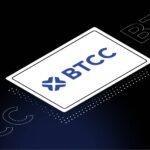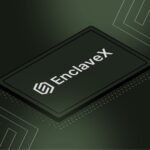In this review, we will look at Unizen, a hybrid cryptocurrency exchange serving both retail and institutional investors. In particular, we will look at what it has to offer in terms of features, what it costs to use the platform, its approach to security, and customer service. In addition to that, this article provides a step-by-step tutorial on how to create a Unizen account and participate in staking ZCX tokens.
About Unizen
The platform combines the best of both worlds between centralized (CEX) and decentralized exchanges (DEX) earning the term CeDeFi. CeDeFi stands for CEntralized DEcentralized FInance and refers to a platform that operates under the customary financial regulations while also experimenting with the modern financial innovations introduced through the blockchain.
Unizen is a centralized hybrid exchange on two levels: on top of being a CeDeFi, it also supports both cryptocurrency trading and staking.
In particular, the exchange runs on top of the Binance Cloud servers enabling it to take advantage of the deep liquidity available on the largest cryptocurrency exchange. Not only that, but it also benefits from the Binance security infrastructure, making it a safe platform to buy and sell a multitude of digital assets.
Users of the platform can take advantage of the following features:
- CeDeFi infrastructure – the platform provides deep liquidity sourced from the Binance exchange while also offering DeFi features within the same interface;
- AI-Powered Social Sentiment Indicators (SSI) – Unizen collaborates with LunarCrush, a social media analytics tool to provide data points on trending topics to traders and investors;
- Trade Aggregator – Unizen recently launched its trade aggregator feature that supports thousands of digital assets based on seven different blockchains. These are Ethereum, BNB Chain, Polygon, Fantom, Avalanche, Arbitrum, and Optimism. Additionally, the aggregator offers deep liquidity sourced from multiple pools across more than seventy DEX platforms;
- Tournament of Altcoins – altcoin projects are subjected to competition for popularity, with the winner getting free listing and support on the platform;
- Dynamic Multi-Asset Staking (DMAS) – Unizen account holders can earn a variety of tokens by staking their ZCX tokens;
- Access to ZenX Labs Portfolio – this is the launchpad platform on the Unizen hybrid exchange on which new crypto projects are launched through IEOs. ZCX stakeholders on the platform can participate in crowdfunding events.
Why do crypto traders use Unizen?
As a hybrid cryptocurrency exchange, Unizen is able to offer its users the benefits of using both a CEX and DEX. For instance, CEX platforms are generally more user-friendly than their DEX counterparts. Unizen is no exception.
DEX benefits include their conveniences such as fast transaction setups, cost-effectiveness, and lack of KYC (know your customer) provisions. Given that Unizen is a hybrid exchange, it does offer KYC, but the rest of the DEX benefits are available.
In brief, here’s why most investors have opted to use Unizen to buy, sell and trade cryptocurrencies:
- Deep Liquidity – Unizen is built on Binance’s Cloud infrastructure, giving it access to some of the deepest liquidity markets across various cryptocurrency trading pairs. Deep liquidity contributes to fast transaction speeds, lower slippage, and cost-effectiveness;
- Trade Aggregation – the Unizen platform is able to source liquidity for thousands of cryptocurrency pairs across seven blockchains and more than 70 DEXs increasing trading convenience and reducing cost;
- Exchange governance – Unizen’s native token (ZCX) holders are allowed to participate in key decision-making events such as voting on IEO projects, augmenting the roadmap, and Unizen design language modifications;
- Dynamic Multi-Asset Staking – staking is proving to be a popular passive-income generating activity for most cryptocurrency investors but what’s unique about Unizen’s product is that ZCX stakeholders can earn token rewards and private-sale allocations in several different digital assets;
- Security and KYC compliance – most DEX platforms shy away from KYC provisions. However, Unizen has to comply with KYC rules as it is a hybrid between a CEX and a DEX platform which increases the safety and security of users and their funds;
- Social sentiment indicators – Unizen provides traders and investors with a robust social trending indicator that shows which topics are trending and the level of their popularity.
Unizen’s key features and products
A platform’s key features and products help differentiate it from its competition. Unizen may be a new trading platform but it does offer a lot for its users. Here are some of its features:
1. CeDeFi architecture
Unizen has three primary components that define its architecture. These are:
- Unizen modules – comprise all modules that Unizen will build and integrate into the platform over time;
- Third-party modules – external developers will be allowed to create and deploy custom-made modules through API integration and a software development kit (SDK);
- Unizen custom logic – serves the task of harmonizing operations amongst all modules to ensure interoperability, coherence, and a fluid interface.
2. Trading
Unizen’s trade aggregator product enables users to access thousands of cryptocurrencies across seven blockchains. It sources its liquidity from multiple liquidity pools available across 70+ DEX platforms.
As a result, users benefit from deep liquidity on several trading pairs, low-cost trades, fast transactions, and an easy-to-use interface as opposed to navigating several bridges to convert between assets.
3. Staking
Crypto investors can participate in staking ZCX tokens by locking their assets within a smart contract. Staked assets can be used to vote on the governance of the platform and which projects get to be supported on the ZenX Labs IEO platform. Rewards on staked tokens are made through various supported assets and tokens from seed/private allocations of IEO projects;
4. AI-Powered Social Sentiment analysis
Unizen has partnered with LunarCrush to provide its users with access to social sentiment signals. The crypto market is highly vulnerable to social sentiments; therefore having this information is crucial before making any critical decisions. This partnership is also essential in deciding which project to support through the IEO process during the Tournament of Altcoins;
5. Tournament of Altcoins
This is a unique offering by Unizen, allowing prospective IEO candidates to battle it out for votes from ZCX stakeholders based on social media popularity on platforms such as Twitter. The winner gets a free listing on the Unizen marketplace and support from the CeDeFi exchange.
The ZCX Token
ZCX is an ERC-20 token based on the Ethereum blockchain and native to the Unizen CeDeFi platform. It is a utility token serving four primary purposes:
- Platform governance – ZCX holders are entitled to participate in making key governance decisions such as:
- Voting on crypto tokens to be listed;
- Deciding on roadmap trajectory;
- Customizing the exchange’s user interface.
- Claiming trading fee discount – as a utility token, traders can claim discounts if they pay their trading fees using ZCX held within UNIZEN:CEX module’s wallet;
- Dynamic Multi-Asset Staking – ZCX holders can stake their assets within Unizen pools and claim rewards in a multitude of other assets, including BTC, Ether, BNB, and ZCX, or get seed allocations in IEO launch projects;
- Direct Access to ZenX Labs Portfolio – ZCX stakeholders get tickets to participate in early-stage investing for ZenX projects and IEO events
According to the Unizen listing on Launchpool, one billion ZCX tokens were created during the TGE (token generation event). This supply is scheduled to reduce as some of the tokens are burned out of circulation to create a deflationary effect. Only part of the listing fees will be burned.
Here’s a rundown of the token allocation schedule following the TGE:
- Team – 20% (200M)
- Ecosystem – 30% (300M)
- Foundation – 28.5% (285M)
- Partners & Advisors – 5.5% (55M)
- Seed – 5% (50M)
- Strategic – 5% (50M)
- Private sale – 6% (60M)
Note
Unizen fees and pricing
Unizen uses a maker/taker trading fee model, and the rates mirror those charged by the Binance exchange from which it sources its liquidity. A maker is a market participant who adds liquidity, while a taker removes or takes it.
Similar to Binance, Unizen also offers trading discounts through the platform’s utility token ZCX. To claim any discounts, ensure that you hold ZCX tokens within the UNIZEN:CEX module’s wallet or your trading account.
Here is the exchange’s updated fee schedule:
Unizen uses a subscription model for its DeFi premium modules, such as the DMAS. In this case, the user is required to pay $50 for a pro subscription using ETH, USDC, or ZCX assets.
The $50 fee applies to every mainnet wallet connected to Unizen, meaning that if you connect multiple wallets to participate in the DMAS module, for instance, each wallet will need to be paid for to access the platform.
Other non-premium modules are free to access for all users.
How to create a Unizen trade account (step-by-step)
Creating an account with Unizen is straightforward. The platform complies with KYC provisions and is easy to use, especially for beginners, and offers essential tools for an experienced cryptocurrency trader. To create a Unizen account, follow these steps:
Step 1 – Visit Unizen.
Navigate to the Unizen homepage through the address https://www.unizen.io/ and click on the [Ecosystem] button on the top-right side of the page.
This action will lead you to the Unizen app where you can interact with Cefi and DeFi modules.
Step 2 – Navigate to the Trading page.
To trade any of the supported pairs, you need to use a Unizen account and therefore, there are the [Register] or [Login] buttons on this interface.
The default landing page from the homepage is the [Earn] interface which is used to interact with decentralized modules. To access the trading page, click on the [Trade] tab on the left-side navigation.
Step 3 – Register for a Unizen account.
Click on the [Register] button on the top right side of the trading page.
Provide your email address and create a strong password. Remember to check the box for accepting terms and conditions, then click the [Register] button.
Step 4 – Verify email address.
Unizen will send a verification code to the email address provided in the step above. Check your email account for the six-digit code and avail it in the following step.
Unizen automatically detects the code once you input it in the field and reloads the page.
Step 5 – Provide KYC details.
Next, Unizen will prompt you to fill in the KYC info form including providing your official name, passport number, date of birth, and address details.
Click on the [Begin verification] button to access your account. You will need to verify these details through the verification section once you access your account.
To do that, hover over the profile icon on the top right side of the trade page after logging in, then select the [Verification, Payments & Limits] link from the drop-down menu.
Next, click on the [Re-verification] button as shown below.
Proceed to provide a scanned image of your identity document and undergo the mandatory face verification. Once you are done with ID verification, you will be able to access all modules within the Unizen platform.
Is Unizen safe?
Unizen is one of the safest CeDeFi platforms in the market. Its centralized exchange module is hosted on the Binance Cloud infrastructure enabling it to source liquidity from the largest cryptocurrency exchange. Additionally, it also inherits Binance’s industry-leading security making Unizen’s trading service among the safest platforms.
Decentralized finance requires that investors maintain custody of their assets which is a much safer approach to security compared to centralized exchanges taking custody of their customers’ assets. To use Unizen’s Earn service for staking, users need to connect an external self-custody wallet such as MetaMask.
Finally, Unizen provides its users with multiple security tools to safeguard their accounts. These are:
- Second-factor authentication (2FA) – Unizen users can enable 2FA through email and/or SMS verification in addition to one-time passcode generators, also called authenticator apps;
- Identity verification – adherence to KYC provisions increases the security of the platform by deterring unauthorized usage of the service;
- Anti-phishing code – phishing is a common method hackers use to steal customer funds. Unizen has implemented the anti-phishing code, which is a piece of random characters or words that the user sets to enable them to identify fake emails from genuine ones;
- Withdrawal address whitelisting – this feature ensures that funds within an account are only withdrawn to whitelist addresses. Any new additions can only be used following a delayed period – say 24-48 hours, which should be enough time to arrest any unauthorized transfers.
Unizen Customer support
Customer support is an essential aspect of a cryptocurrency exchange where most platforms have invested heavily in communities and community managers to help solve customer issues. Unizen, despite being a relatively new exchange, has also cultivated a vibrant community of fans on social media channels.
Users can quickly get help with their questions, from figuring out how to create an account to configuring API keys and participating in ZenX projects. Customers can also use these channels to follow up on roadmap development and execution.
Here are some of the channels to get help from Unizen and its community of users;
Pros & Cons of using Unizen Smart CeDeFi Ecosystem

Pros
- Unizen’s CEX module runs on the Binance Cloud infrastructure inheriting the security and cost-effectiveness of the leading cryptocurrency exchange;
- Hybrid centralized and decentralized product offering enables the platform to serve a wider clientele depending on their needs;
- The DMAS feature enables stakers to claim rewards in several other assets saving them an extra step of having to convert the rewards to assets of choice;
- High regulatory compliance ensures that the platform can attract institutional investors;
- Unizen offers a native utility token that can be used to claim discounts on trading fees;
- The platform offers a simple and intuitive user interface;
- Users have a comprehensive list of security tools to help protect their accounts;
- There is deep liquidity sourced from multiple liquidity pools on over seventy DEX platforms. The exchange supports thousands of assets across seven different blockchains including Ethereum, Polygon, and the BNB Chain;
- The DEX module provides support for an extensive list of wallets including MetaMask, Coinbase Wallet, and WalletConnect-supported wallets;
- Community members and ZCX stakeholders can participate in the governance of the platform.

Cons
- The exchange does not offer anything new, which pits it against other more established platforms that have specialized in offering either centralized or decentralized DeFi and trading services;
- Each mainnet wallet interacting with the DMAS module will pay a $50 subscription fee, which could get expensive for an investor using several wallets on multiple networks;
- Unizen is relatively new to the marketplace.
Final thoughts
Unizen’s hybrid CeDeFi offering is a solid addition to the diverse cryptocurrency trading marketplace. Investors are often split between choosing centralized and decentralized service providers, but now with Unizen, they do not have to choose. They can get both in a single platform.
There are several benefits to using the exchange, including offering deep liquidity markets sourced from Binance. Binance is also a highly secure exchange, a feature that trickles down to Unizen through tapping into the former’s Cloud services.
The comprehensive list of services and products will satisfy most cryptocurrency investors. As the team works towards realizing its project roadmap, users can expect more features.
Frequently Asked Questions on Unizen (ZCX)
What is Unizen?
Unizen is a hybrid cryptocurrency exchange offering centralized and decentralized services to retail and institutional investors. The platform complies with regulatory provisions for a financial services provider while also appealing to self-custody users interested in accessing deep liquidity markets.
What can I do with the Unizen token (ZCX)?
ZCX is a native ERC-20 utility token on the Unizen exchange which can be used in four ways:
- Claiming discounts on trading fees;
- Participating in the exchange’s governance;
- Gaining access to the ZenX Labs Portfolio; and
- Staking through the DMAS module.
What are the fees of using Unizen CeDeFi exchange?
The Unien:CEX module charges trading fees based on a maker/taker basis with the fees ranging from 0.04% to 0.1%. Uses can claim discounts on these rates using the ZCX tokens.
Decentralized modules employ a subscription model with each mainnet wallet connection costing $50.
How do I contact Unizen’s customer support?
There are several communication channels for Unizen customers to reach the exchange’s team or get help from the community. They include:
- Social media channels – Twitter, LinkedIn, and Medium;
- Messaging channels – Telegram and the website contact form;
- Development platforms – Github;
- The website blog for updates, tutorials, and announcements.




